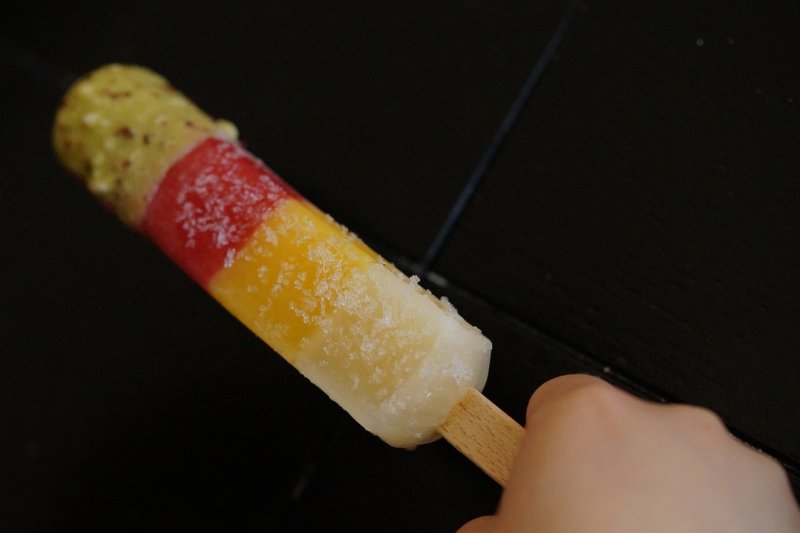Researchers say the ads shown during sporting events are helping children to opt for less healthy foods, with the National Football League named as the worst offender. Photo by Efraimstochter/Pixabay
MONDAY, March 26, 2018 -- Far from trying to keep kids fit and trim, America's biggest sports leagues are actually pushing junk food at them, a new study contends.
Multimillion dollar "sponsorships" forged between professional sports organizations -- like the National Football League -- and food companies often end up marketing high-calorie foods and sugary beverages to kids, researchers reported.
The researchers found that more than three-quarters of the foods promoted through such agreements were "unhealthy" -- including chips, cookies and sugary cereals.
And since children and teenagers are among the sports leagues' biggest fans, the pull of that marketing raises public health concerns, the study authors said. This is especially true given America's obesity epidemic.
"It's kind of ironic and paradoxical that sports organizations, which encourage physical activity, would be promoting junk food to kids," said Marie Bragg, the study's lead researcher.
Sports sponsorships are nothing new. Coca-Cola has sponsored every Olympic Games since 1928, said Bragg, an assistant professor of population health at NYU School of Medicine in New York City.
And it's no surprise, she said, that the big sports sponsors are makers of chips, candy and soda -- and not vegetable growers.
"Those are the corporations with the money," according to Bragg.
In 2011, for example, PepsiCo agreed to pay $90 million a year for a 10-year sponsorship with the NFL, Bragg's team pointed out in their report.
When a company gets billed as an "official sponsor" of a sports organization, it can use the group's logo on its products or website. Similarly, the sports partner promotes its corporate sponsors -- on its website, for instance.
That's in addition to traditional commercials and other ads that tout the partnership.
"If companies are willing to shell out that much money, they must believe they are getting something out of it," Bragg said.
For the new study, the researches used Nielsen ratings to identify the 10 sports organizations most watched by U.S. kids aged 2 to 17 in 2015.
These organizations included the National Football League, the National Hockey League, the National Basketball Association, Major League Baseball, NASCAR and Little League.
The researchers then dug into the corporate sponsors for each organization, and found that almost one-fifth were food and beverage brands, marketed by 18 companies. They were second only to automotive sponsors.
Bragg's team then analyzed 273 ads for those foods and beverages, including TV and YouTube commercials, and still images from websites.
Overall, 76 percent of foods were deemed unhealthy, and over half of beverages were sugar-sweetened. The culprit foods ranged from fast-food giant McDonald's and Papa John's pizza, to an array of chips, candy, cookies and sugar-laden breakfast cereals.
The NFL led the way, with the most young TV viewers and the most food and beverage sponsors. On YouTube, those sponsorship ads had been viewed more than 93 million times through 2016, the researchers said -- though it's not clear how many of those viewers were kids.
The NFL did not respond to requests to comment on the study.
According to Bragg, a wealth of research shows that ads do influence eating habits.
So, she said, it's concerning that kids are seeing so many junk-food messages tied to the sports teams they watch and admire.
The reality is, the next Super Bowl will not be sponsored by carrots, Bragg said. But the food giants involved in sponsorships make a slew of products.
So, in theory, they could promote their healthier products, Bragg suggested.
Connie Diekman, a sports dietetics specialist, agreed.
"This study provides a good baseline of data for sports organizations and food companies to begin a conversation on how to change the balance of products promoted," said Diekman. She directs university nutrition at Washington University in St. Louis.
Parents have an uphill battle countering the many junk-food messages in the media. But, Bragg added, they can agitate for change by "tweeting at" the companies, for example.
"Companies do care about what consumers think," Bragg said. "When enough demand change, they often listen."
According to Diekman, parents can also help by limiting kids' "screen time" -- TVs, computers and phones -- and demonstrating healthy eating habits.
"I would encourage parents to make sure they model good food behavior when attending or watching a sporting event, so that kids see how to balance less-healthful choices with more-healthful options," Diekman said.
The findings were published online March 26 in the journal Pediatrics.
More information
The American Psychological Association has more on junk food ads and kids.
Copyright © 2018 HealthDay. All rights reserved.
![]()
















